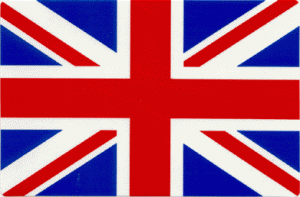Révision du trimestre :
What is this ? -This is my English book it is not square it is rectangular.
The corners are not round, they are square and pointed.
In my English book there are many pages;
on those pages there are many sentences, words and letters.
The book has a back and two sides, they are made of card-board.
At the beginning, there is a preface, at the end, there is a table of contents.
My book is not difficult, the lessons are easy, it is pleasant to work in it; I like it very much.
An object lesson : My English book
A sentence : une phrase
A word: un mot
A letter: une lettre
Many: beaucoup devant un mot pluriel
Much: beaucoup devant un mot singulier ou dans un sens vague.
I like it very much – je l’aime beaucoup
Another object lesson : My penknife
My penknife is in my pocket, but now I have it in my hand.
This is the blade and this is the handle.
The handle is made of wood or of ivory or of silver.
This handle is made of bone. I open my knife and I look at the blade;
this is the back of the blade and this is the edge.
The edge cuts.
With my penknife I sharpen my pencil
Blade : lame Handle : manche
Back : dos Edge : tranchant
Made of : fait de To cut : couper
To sharpen : tailler Wood : bois
Silver : argent Bone : os
Ivory : ivoire Card-board : carton
My penknife is very useful
Preterite of a regular verb to work
I worked we worked
he worked you worked
she worked they worked
it worked
Quelques verbes irréguliers
S’asseoir : to sit down, se lever : to stand up , aller : to go, venir : to come
Ecrire : to write , lire : to read , prendre : to take , donner : to give
Dessiner : to draw , faire : to do, savoir : to know
Remarques de grammaire :
I-En anglais le prétérit correspond à la fois à l’imparfait et au passé défini.
II- Le prétérit des verbes réguliers se forme en ajoutant ed à l’infinitif.
III- Cette terminaison ne forme une syllabe à prononcer séparément qu’après les consonnes t et d.
corrected repeated mended
Le reste du temps on prononce ainsi :
asked = ask’t
worked = work’t
played = play’d
IV-Les verbes anglais sont toujours réguliers au présent.
(Les formes irrégulières des verbes ci-contre seront étudiées plus loin).
Revise :
Cardinal numbers
Ordinal numbers
Days and months
Spelling : Orthographe :
One : first eight : eighth
two : second nine : ninth
three : third twelve : twelfth
five : fifth twenty : twentieth
Abbreviations :
First 1st 21st twenty-first
Second 2nd 33rd thirty third
Third 3rd 55 th fifty-five
Fourth 4th 55th fifty-fifth
Date :
Aujourd’hui To-day is Monday the 1st of March
Demain To-morrow is the 2nd of March
Hier Yesterday was sunday the 28th of February
Prépositions :
Certains verbes anglais sont toujours accompagnés d’une préposition :
To listen to to look at2°- Le rôle de la préposition est trés important
3°- Certaines prépositions modifient complètement le sens du verbe.
Entrer to go in sortir to go out
to come in to come out
Monter to go up descendre to go out
to come up to come down
S’en aller to go off retourner to go backEmployez le nombre ordinal pour indiquer le quantième du mois :
22 août the twenty second of August
30 juin the thirtieth of June
31 Juillet thirty-first of july
Preterite of another regular verb:
Another = un autre
To count = compter
I counted in English We counted
He counted in English You counted
She counted in English They counted
It counted in English
I count from one to twenty
Age- How old are you ?
Old = âgé, vieux
Answer- I am twenty years old
I am twelve and a half years old
A half= une demie a quarter = un quart
Remarques de Grammaire :
I- Les prépositions at et to traduisent la même préposition française à.
At s’emploie pour indiquer le repos I am at school
To s’emploie pour indiquer le mouvement I go to school.
Ainsi on dira :
I write to you
I speak to you
I go to
I come to
I give to
II- Les prépositions of et from traduisent la même préposition de.
From marque le point de départ, la provenance.
I come from Paris
Birthday : anniversaire
I was born : j’étais je suis né
When ? quand ?
How old are you ? I am twenty years old
When is your birthday ?
My birthday is on the fifth of June
When?
In what year were you born ?
I was born in the year 1902…….
(one thousand nine hundred and two)
Remarques de Grammaire :
I- N’oubliez pas la préposition on devant une date.
I come on Tuesday
My lesson is on Wednesday
He was here on the 6th of January
II- Dites toujours : I was born
pour: je suis né
III- Il y a entre in et into (dans) la même différence qu’entre at et to :
I am in the class room
I go into the class room
Vous avez une semaine voire quelques jours de plus pour apprendre cette leçon…
Bon courage
Gérald
regina@pressealpesmaritimes.com

